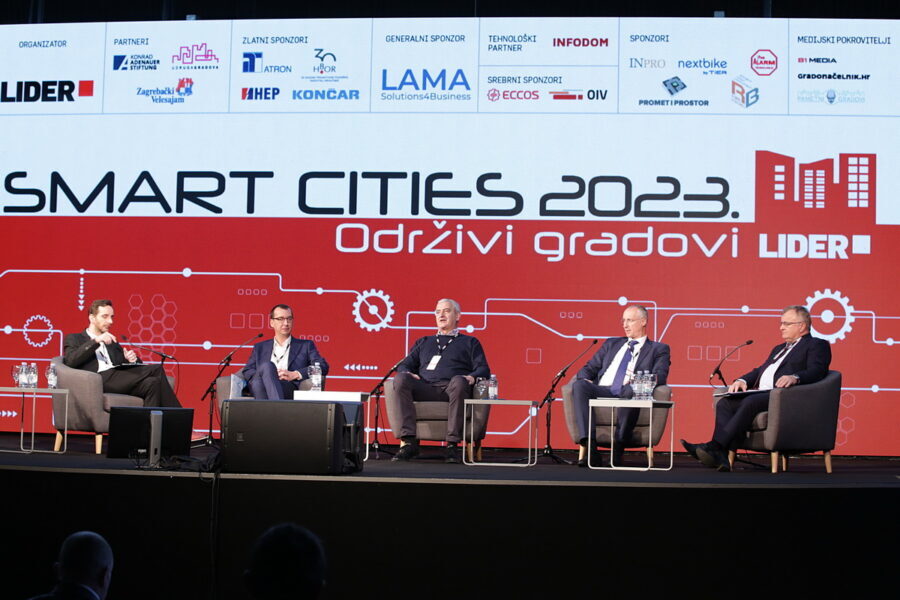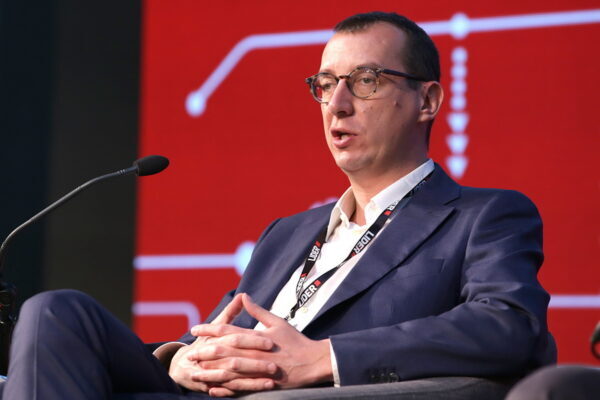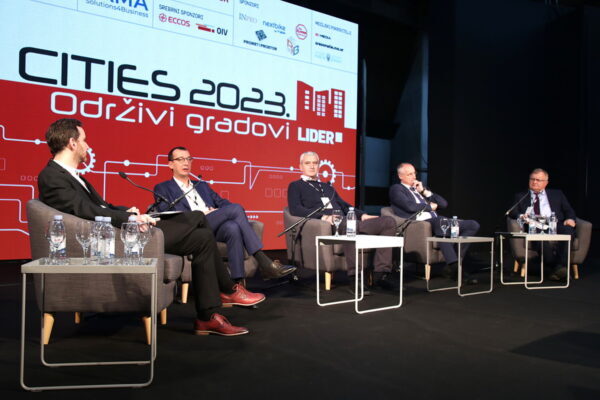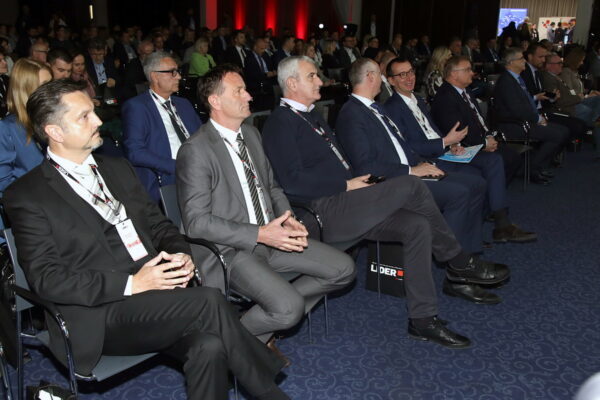
The mayor of Rijeka, Marko Filipović, took part in the panel discussion “Innovations as Pathways to Sustainable Cities”, within the 9th Smart Cities Conference, organised by the business weekly newspaper Lider, taking place in Zagreb.
The all-day conference brought together city representatives, entrepreneurs offering smart solutions, the academic community and the public sector in order to jointly find answers to pressing questions and detect quality examples of implementing smart solutions in practice. Leaders of Croatian cities at the Lider conference shared their plans, and also their experiences in the digital and green transition, and discussed how quality management based on sustainable strategies, transparency, waste disposal and smart mobility reflected on the enhancement of the quality of life, thus making life in Croatian cities safer and better.

Mayor of Rijeka Marko Filipović
“According to some research, today 50 percent of the population lives in cities, and some estimates say that by 2030, 67 percent of people will live in cities. In Croatia, according to the population census, 60 percent of people live in cities, and all mayors and administrations have a huge task to manage these unstoppable processes, and also make life in cities as quality as possible,” said Miodrag Šajatović, editor-in-chief of Lider in his opening address.
In addition to Mayor Filipović, the panel discussion “Innovations as Pathways to Sustainable Cities” was attended by Ivica Puljak, mayor of Split, Damir Mandić, mayor of Karlovac and Željko Turk, mayor of Zaprešić and the President of the Association of Cities, presenting new projects and examples of city governance and innovations aimed at improving the quality of life of their inhabitants.
Mayor Filipović reminded that many city, state and private investments were underway in Rijeka, that would improve the quality of life of citizens.

MARKO FILIPOVIĆ, DAMIR MANDIĆ, IVICA PULJAK AND ŽELJKO TURK
“In order to improve the quality of life, for example by maintaining the future quality of water, or to continue the development of the Rijeka transport corridor with the help of further development of roads, rail transport, or container transport, as well as a number of projects concerning the reduction of negative impacts on the environment, we must have patience and understanding, keeping in mind – a better tomorrow, a sustainable and safe future. I am convinced that in the end, precisely because of projects like these, the present, and especially the future generations, will definitely be grateful to us”, said mayor Filipović.
Among the large infrastructure works, the most visible are certainly the works on the water supply and drainage system that are taking place within the EU project Improvement in water and utility infrastructure in the territory of the Rijeka Agglomeration, one of the largest interventions as regards utility infrastructure in Croatia.
Also, the implementation of the EU project Renewal of the heating system of the City of Rijeka is underway, which entails the renewal of the heating system in such a way that the largest amount of renewable energy sources that are not available at the moment could be integrated into the system in the future.

9th Smart Cities Conference
Within the refurbishment of the Benčić Art-Quarter, the new building of the Rijeka City Library is being completed within the largest intervention in the field of cultural infrastructure in Croatia. Among the city’s projects, refurbishment works continue on the building that will host Energana (Power plant) – Incubator for creative technologies and the IT industry.
State road D403 is currently being built in Rijeka, which will connect the new Zagreb Deep Sea container terminal with the western part of the Rijeka ring road, and two large projects are also planned. As the largest investment in nautical tourism in the history of the Republic of Croatia, the ACI Marina Rijeka will be built in the nautical tourism port “Porto Baroš”, and the construction of the multi-purpose complex Žabica Complex has been envisaged in the city centre.
Speaking about the innovations introduced during the past year and presenting the projects that are planned, Mayor Filipović pointed out that the CEKOM EU project for smart cities had been completed at the beginning of March. This is the largest development project in Croatia in the field of information and communication solutions aimed at improving the quality of life of citizens. Within the project, the partners developed 36 innovative products and services in the field of smart city technology, such as managing urban mobility, city traffic or utility infrastructure management.
Currently, the City of Rijeka is planning, with the use of national and EU funds, to install solar power plants on 21 buildings. Preliminary analyses revealed that an estimated investment of around one million euros (without VAT) would result in annual savings of 225,000 euros on electricity bills.
Further increasing energy efficiency in traffic, and after purchasing a large number of new buses in recent years, the utility company Autotrolej is preparing for the next tranche of EU funds where, as expected, the focus would be on electric vehicles.
The City of Rijeka continuously invests in increasing the transparency of its work, and one of the projects, which has been in place for two years, is the “Open Budget” application, which gives the general public an insight into budgetary payments in real time, not only payments from the city budget, but also of all institutions and other budget beneficiaries gathered in the Treasury system.
Among the many projects aimed at the development of entrepreneurship, the City of Rijeka designed and is currently developing the internet platform “Enter Rijeka” which will bring together information intended for entrepreneurs and investors.
(photo: Ratko Mavar/LIDER)

